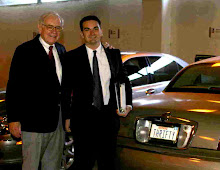I have been hesitant to jump to many conclusions about the Wrigley deal because I think there are still a lot of unanswered questions about Berkshire's involvement in it. Hopefully many of the details will be explained this weekend at the annual meeting. I do have some initial thoughts, however.
Wrigley is a company I have owned for about two years now, and have done very well with it. I like bragging about investments like this because lately most of mine have been losers, not winners like Wrigley. My original purchase price was $46. At the time the company simply seemed undervalued. And anytime a family-run business with a huge moat and extremely consistent operating history sells at even slightly less than intrinsic value, I thought, it is a good time to get in. And that is exactly what I did. It was shortly after Wrigley had acquired the Kraft confectionary group. The market was worried Wrigley would have trouble integrating it into its existing business. Ultimately, these concerns proved unfounded.
So when I heard the company was being acquired at $80/share in cash, my reaction was mixed. I enjoyed the nice one-day pop, but as with many cash or taken-private transactions, this also means the party is over. I will not be able to own Wrigley and share in the company's success any longer. In that sense, I was not happy to hear of the acquisition.
But perhaps most striking is the way in which the media has described the deal as a joint venture by Mars and Berkshire. So far as I can tell, it is not. This is where the discussion this weekend should be informative. It sounds to me like Berkshire is supplying a mere $5 billion in debt capital. This is far from a Berkshire acquisition. Moreover, it is quite possible the $80 bid was way too high, and that Wrigley stock was more appropriately valued before the deal was announced, at $65. Berkshire, by supplying only debt, wouldn't necessarily balk at Mars offering an arm and a leg.
Nonetheless, it is always comforting when Warren Buffett is involved in a transaction in any way. And having decided a while back Wrigley was a good investment, I enjoy being proven correct, if that is the appropriate way to interpret this. There is now doubt that Wrigley is a Buffett-type investment. I just wonder if it really is a Buffett investment.

